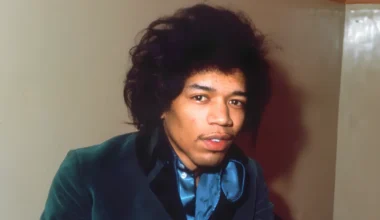When grunge burst onto the scene in the early 1990s, The Rolling Stones were already seasoned veterans of rock ‘n’ roll. With a reputation as one of the most influential ‘British invasion‘ bands of the 1960s, they had witnessed the ebb and flow of musical empires and had embraced the diverse sounds emerging from America during that era. Their ambition soared from being a “cool blues band” to becoming the top in London, and eventually, as their musical style evolved, the absolute best band in the world.
They built their entire career by reimagining the music of iconic early American blues artists such as Robert Johnson and B.B. King. However, the scope beyond this sturdy foundation shifted. Throughout the years, they wholeheartedly embraced a wide range of musical genres, including R&B, soul, funk, disco, and more. On the other hand, they had a slight aversion to the nihilistic punk influences of grunge. And who could fault them? In their own country, the punk bands that many of these American grungesters admired had diminished The Rolling Stones’ reputation. Well, it’s interesting to note that Johnny Rotten once made a rather extreme statement about Mick Jagger, expressing a desire to harm him and even releasing video evidence. However, it’s worth mentioning that he has since taken back that statement.
It’s rather expected that when Jagger was questioned about grunge in 1995, The Rolling Stones frontman admitted that he wasn’t particularly fond of Nirvana, but he did enjoy Pearl Jam. I’m feeling a bit disconnected from things right now. “I was never a fan of Nirvana – their music was too filled with angst for my taste,” he remarked. “However, I have a fondness for Pearl Jam.” I have a strong preference for them over many other bands. There is a significant amount of distress present throughout. It’s truly fantastic to explore this opportunity. However, I don’t particularly enjoy gloominess.
Nevertheless, Mick Jagger promptly pointed out that, despite the contrasting sound and lyrical themes of the two genres, grunge still drew significant inspiration from ’60s rock. In that very interview with Rolling Stone, Jagger expressed his observation. He noted that when there are four individuals playing guitars and such, there is a notable influence from the 1960s. They might seem to be performing the same song or have a similar appearance on MTV. Or perhaps you’ve encountered certain haircuts popularized by the Byrds.
“However, the grooves have a distinct variation,” Mick Jagger added, “They are heavily influenced by the captivating rhythms of dance music.” After three decades, one doesn’t continue to play the same rhythm. That’s great. None of these bands would assert themselves as boldly unique. It’s truly uplifting to experience the magic of live music once again. Encouraging for individuals involved in a musical group. It’s a classic choice to revisit. “It reaffirms the original form that captivated us.”
When presented straightforwardly, grunge appears to be nothing more than rebellious rock music with a distorted edge. It’s not surprising that Keith Richards claimed to have invented the genre. Exploring the iconic 1972 album Exile On Main Street by the Stones, he detailed how the album defied conventions to such a degree that it nearly faced cancellation. It’s quite interesting. Richards reflected on the challenges we faced in persuading Atlantic to release a double album.
He added, “At first, sales were quite modest. It was once regarded as a failure for a while. This was a time when the music industry was brimming with immaculate sounds. We were heading in the opposite direction. That was the initial grunge album. Indeed, it is one of the finest works by the Stones. Although it may be a somewhat debatable assertion, considering Jagger’s lack of enthusiasm for the genre, there is a hint of truth in the notion that Exile on Main Street does indeed embody a sense of gritty dissatisfaction.
One could argue that Pearl Jam closely resembled the Rolling Stones among the bands from Seattle. In 2005, Jagger’s admiration for Pearl Jam led him to invite Eddie Vedder to join him on stage for a performance of ‘Wild Horses’. In 1992, Keith Richards extended an invitation to Pearl Jam to open for his group X-pensive Winos in New York. This opportunity arose between the release of Pearl Jam’s debut album “Ten” in 1991 and their follow-up album “Vs.” in 1993.








